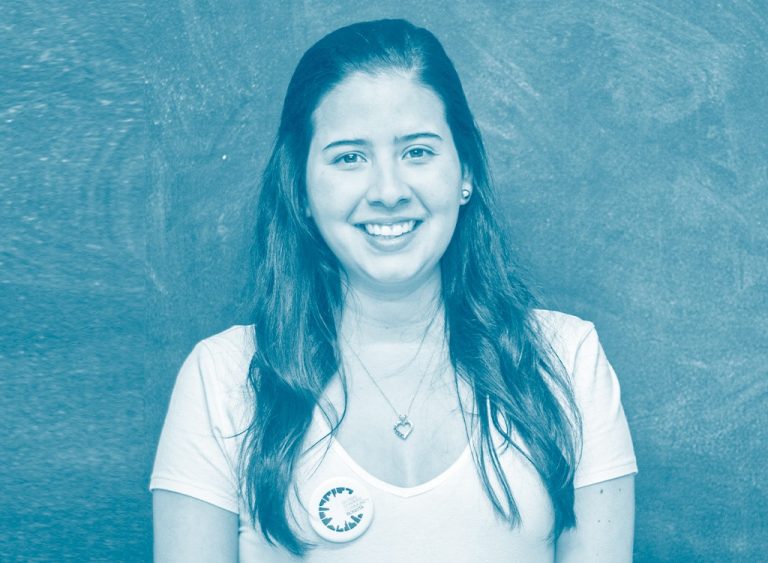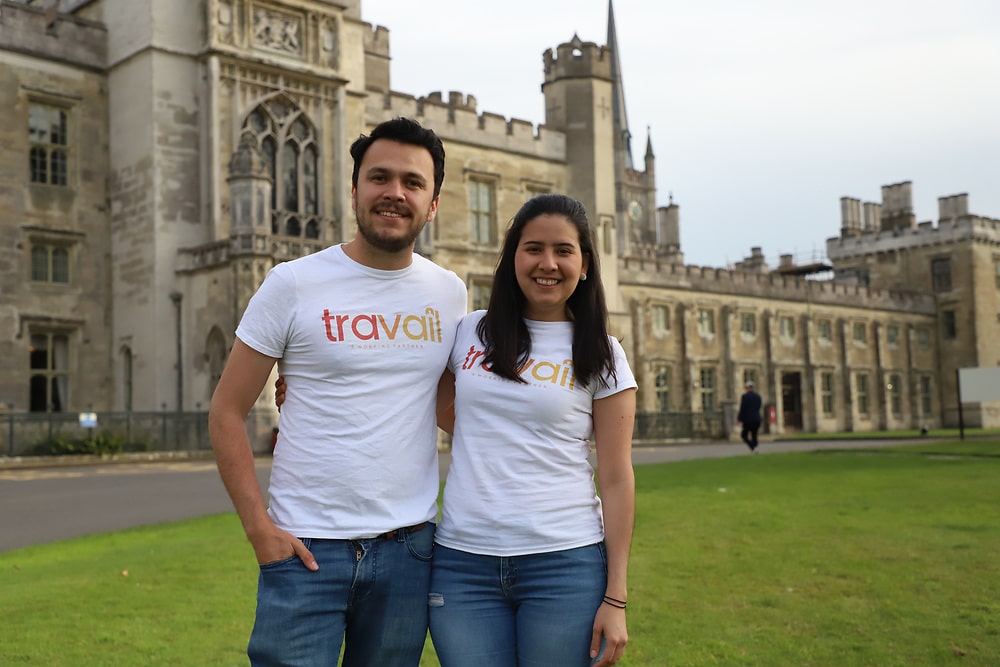4 de diciembre 2021

Children of Exile: The Births “Sowing Hope” in the Camp of Nicaraguan Farmers

PUBLICIDAD 1M
PUBLICIDAD 4D
PUBLICIDAD 5D
Vanessa Castro’s master’s project “Travail” went from connecting Colombian users with flexible work opportunities, to becoming part of Torre

Vanessa Castro’s master’s project “Travail” went from connecting Colombian users with flexible work opportunities
The idea began as a Vanessa Castro’s Master’s project and ended as a business idea that proved both competitive and attractive to investors in Colombia. At 31, the young woman from Managua has forged a path for herself in the world of technology and entrepreneurship.
Vanessa Castro finished her undergraduate studies in Business Administration, then worked for several years in non-profit organizations aiming to stimulate the growth of entrepreneurs and small and medium businesses. “I’ve always opted for jobs with a social focus,” she says.
Vanessa traveled to Colombia in 2017, to attend a Master’s program in Business Administration at the University of the Andes. She never imagined she’d meet Ivan Castañeda, who today is her partner. Together, they created Travail, a platform that is having a positive impact on the national labor market.

Vanessa Castro and Ivan Castañeda, during their participation in the 2019 Hult Prize Accelerator in London. The Hult Prize is a competition where emerging businesses prepare to attract investors, network and learn. Courtesy Photo
Ivan is a Colombian with experience in the hotel and food industries. He knew well the limitations and weaknesses of this sector, including the difficulty in contracting last-minute help for high turnover operations.
Vanessa Castro, who had experience working with entrepreneurs, thought about the needs they had. “I knew it would be good for this sector, at the base of the pyramid, to have access to an immediate salary, or to make extra money,” she recalls.
From the conversations between these two professionals, the idea arose of creating a digital app that could connect both parties in a practical and efficient way. “The same way we call an Uber,” says Vanessa.
They began developing the idea in 2018, as part of their Master’s thesis. They subjected the idea to a manual validation process through their social media and discovered that it really had potential. They launched the app on the market in 2019.
That’s how Travail was born. The name of the platform is the French word for “work”, and its aim is to connect people looking for flexible or hourly work, with the culinary or hospitality companies that need personnel for certain periods of high demand. Companies must be willing to offer immediate payment for work done.
The platform contains two apps: one for potential employers and the other for candidates. Candidates must sign up through the platform and subsequently undergo a process of verification by the team. “They give details here about their availability and their minimum expected wage,” explains Vanessa.
Once accepted, both the companies and the people enrolled can connect as they need to.
Thanks to its usefulness, Travail became well accepted in the Colombian labor market. However, Vanessa also adds that they took advantage of every opportunity to make the application known.
“The Colombian system encourages entrepreneurs through activities and gatherings where they award prizes and recognitions. We didn’t let these pass us by, but we signed up, aiming to win.”
That’s how their platform began opening doors, and gaining recognition, validation, and publicity. They won important prizes for innovation, such as the Hult Prize and the Massachusetts Institute of Technology (MIT) Global Startup Award. In October 2020, the platform won the fourth edition of the Boston Consulting Group and Yunus Funds Social Start-up Prize in Colombia. Winning that prize put Vanessa on the radar of Forbes’ Magazine, which then recognized her as one of the hundred most powerful women in Central America or the Dominican Republic.
The Travail application for locating vacant jobs has now become part of Torre, an employment platform with some 1.5 million users around the world.
Beginning in 2019, Colombian investor and businessman Alexander Torrenegra became interested in Vanessa and Ivan’s platform. Torrenegra learned about it when he served as judge for the MIT event that was held in Colombia, which Travail ended up winning.
Torrenegra is the creator of the Torre platform, which offers remote employment on a national and international level, with an infrastructure of 1.5 million users located in over 180 countries.
After nearly two years of conversations with Torrenegra, Vanessa and Ivan decided to become part of Torre, given the global reach of the larger platform and the leverage it offers. The partners sold their start-up for a sum which Vanessa prefers not to disclose.
“There’s a phrase I like, which says: ‘Do you want to be a mouse’s head, or a lion’s tail?’ I prefer the lion’s tail, something that’s going to be much larger. It will grow faster,” Vanessa explains. At the same time, she notes that the visions of Travail and Torre are the same: to help the operational sector gain rapid access, including both job options for employment candidates, and access to job seekers for the companies.
After being sold to Torre, Travvail is currently off the market while the necessary changes after the acquisition are in development.
In April 2020, Vanessa launched a platform called Comarket in Nicaragua with the aim of aiding small and medium businesses with their marketing, by helping them put their markets online. However, this app didn’t have the same success as Travail in Colombia.
“A lot of things are still left to be achieved inside the country. One of them is openness to the use of credit cards for [online] purchases. There’s a lot of fearfulness about using them. Once there’s more rapid progress towards that acceptance, we might try again,” she indicates.
Vanessa sees Nicaragua as a blank canvas on which a lot could be done, but where you need to find the right moment to begin investing in projects of this type. Meanwhile, she wants to continue learning within the world of technology entrepreneurship, and to grow professionally before returning to her home country.
This article was originally published in Spanish in Confidencial and translated by Havana Times
Archivado como:
PUBLICIDAD 3M
Periodista nicaragüense exiliada en Costa Rica. Se ha especializado en la cobertura de temas de migración, género y salud sexual y reproductiva. También ha trabajado en Marketing y Ventas y ha sido Ejecutiva de Cuentas.
PUBLICIDAD 3D